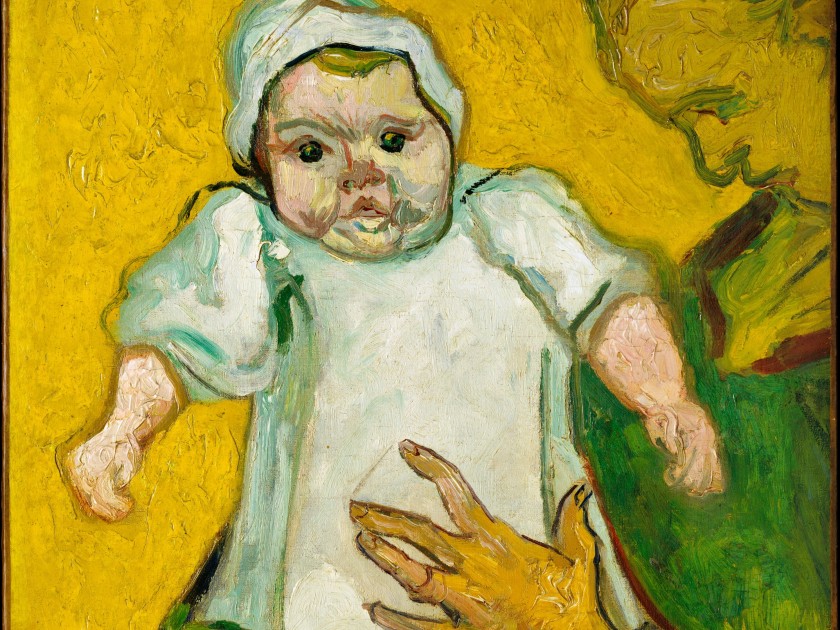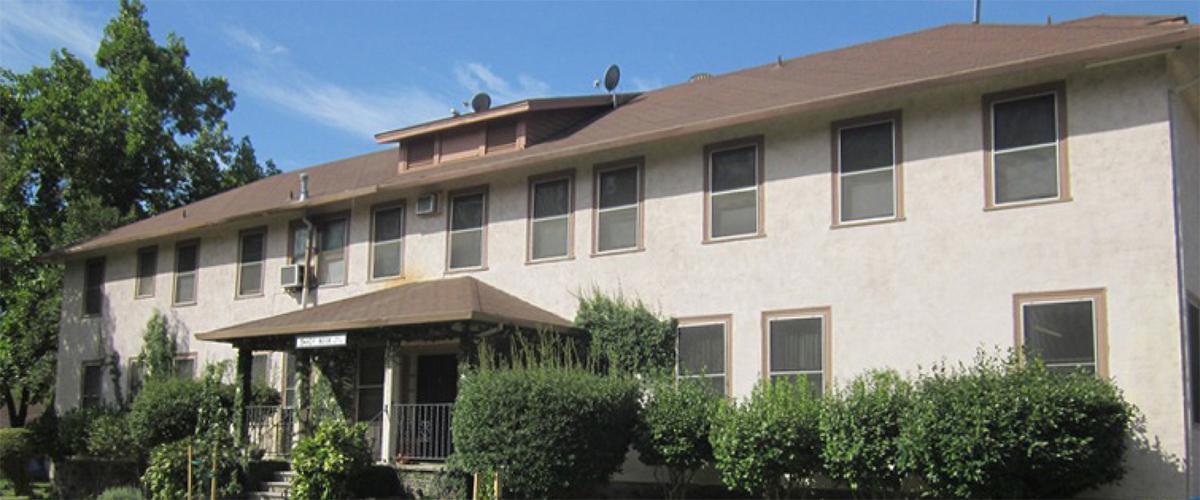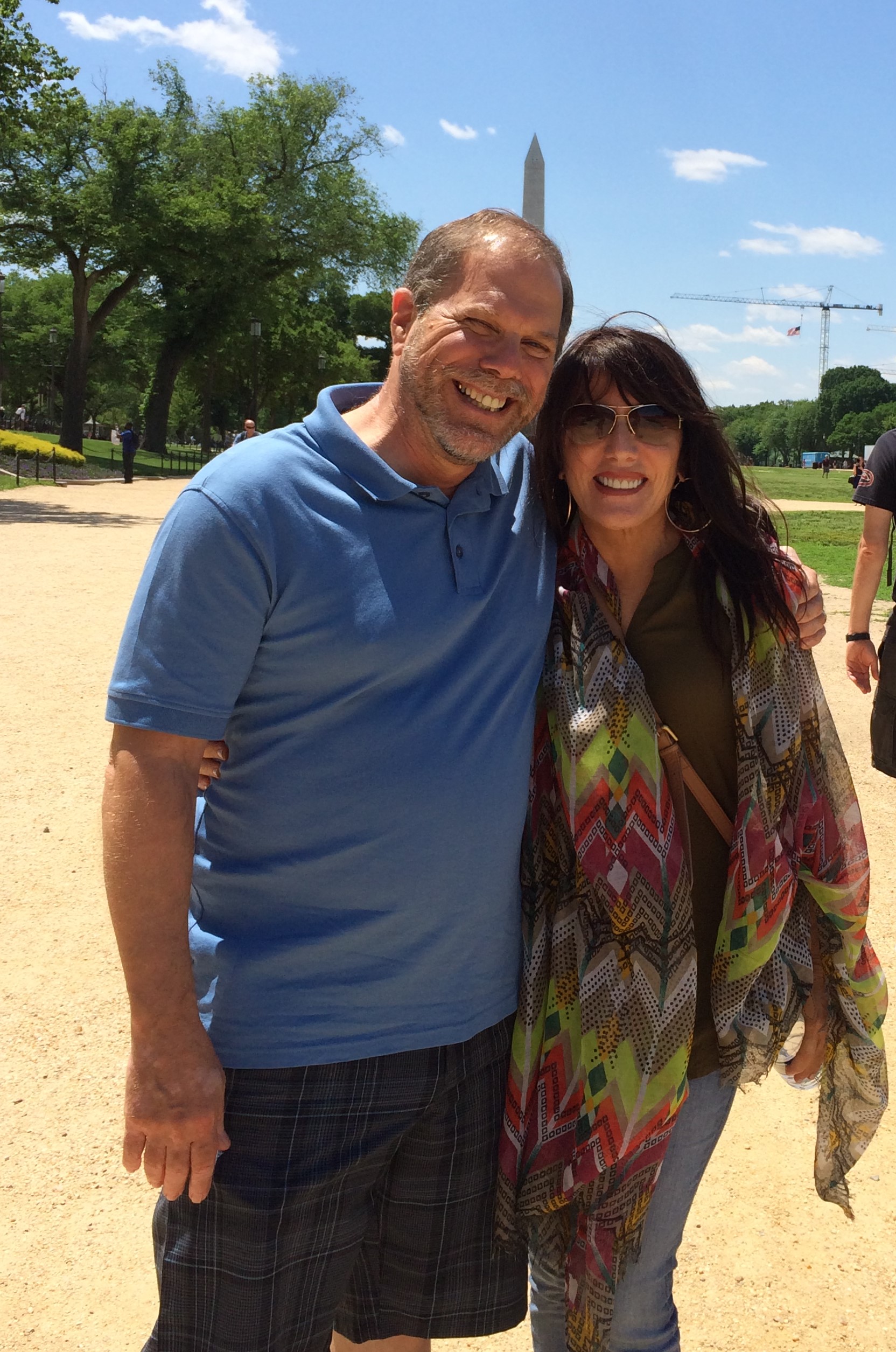
Madame Roulin and Her Baby by Vincent van Gough, 1888 (detail)
The Metropolitan Museum of Art, Robert Lehman Collection, 1975
My grandmother and I were sitting at my kitchen table playing gin rummy when she suddenly put down her cards and looked me in the eye. I thought maybe she was finally going to admit that she cheated since, as usual, she had won every hand.
“What?” I said, more than ready for a confession.
She lit a cigarette and took a deep drag before speaking: “I have something to tell you.”
“Okay,” I said, surprised by the gravity of her tone.
“You know your parents are in Sacramento.”
Of course I did. They’d flown up there from L.A. the day before for a weekend getaway. I was thirty-two years old, but still talked to my mother almost every day. And my grandmother, who had come to visit my newborn son, knew that.
She swallowed hard. “Promise you’ll never tell your mother. Promise you’ll plead ignorance when you hear it from her.”
God love her, my bubbe had kept this secret for years, but it had finally gotten the better of her. I could have pressed before answering, but my curiosity was piqued and I agreed to her terms without reservation. Still, I could have never imagined the ways in which the next words out her mouth would change my life: “Your parents went to Sacramento to meet your half-brother, mein kin. You have another sibling. Your mom,” she said, choking up, “had a baby when she was only fifteen. Before she met your dad. She had him at a home for unwed mothers.”
The story that followed shocked but didn’t upset me. Rather, it was revelatory, shedding light on much of my mother’s parenting, particularly what I had always interpreted as over-protectiveness. A great deal came into focus. But it was particularly her experiences at the Home, which she later recounted to me herself, that set me on a spiritual journey and path to becoming a novelist.
Fairhaven Home for Unwed Mothers, like many such facilities in the 1940s and 50s, was run by the Christian-based Salvation Army. Their mission was to help so-called wayward girls reclaim their lives. But the effect was often the opposite, leaving them with lasting emotional scars. Such was the case with my mother, who described everything at the Home, from the physical environment to the chores to the food as punitive. The structure itself resembeled a prison. Concrete and unadorned, the two-story buiding was also isolated, set back in an overgrown field, ten miles from the nearest town. Residents were required to mop the floors, do the dishes, and wash diapers over vats of boiling water, a task my mother recalls as particularly taxing. Dinner on a good day was mushy sailsbury steak, something that sent more than one already nauseous mother-to-be running to the bathroom. But the worst part was the shame, the daily reminders by the staff that they were fallen and inferior, that they had sinned and thus needed to repent. Repent. On their knees, before a crucifix. And while this weekly event was humiliating for all, it was an extra burden for my mother, who was Jewish.

Fairhaven Home for Unwed Mothers
Though my mother had planned to give her baby up for adoption, the Home required her to bond with him anyway. A kind of final punishment my mother tried to abate by demanding that his adopted family be Jewish.
You might wonder why she was sent there in the first place. Suffice it to say there were very few options for girls in her condition. And her stay at the Home was traumatic to the end. After a brutally hard labor, she was hospitalized for a few days before returning to recuperate in her Fairhaven quarters. She was exhausted and depressed. But though she’d planned to give her baby up for adoption, the Home required her to bond with him anyway. Feed, diaper, and hold him. Smell his innocent breath. Look into eyes that resembled her own. A kind of final punishment my mother tried to abate by demanding that his adopted family be Jewish.
At the time I learned all of this I was a returning college student, working my way toward a PhD in literature. For years, my relationship to my Jewish heritage had been antagonistic, as I grew up in a WASPish area and desperately wanted to fit in. But I’d recently begun to reconnect with that part of myself. To feel pride rather than my own brand of shame. My mother’s story solidified that feeling, led me to teach about marginalized authors, to explore women’s issues, and finally to write about Jewish themes. It readied me in particular for Sarah Kaufman, a 1920s civic leader whom I encountered in an old, yellowed newspaper. A woman ahead of her time, Sarah lived the Jewish concept tikkun olam, repairing the world. In her roles as social worker, court officer, and juvenile counselor, she fought injustice. And as an ardent supporter of unwed mothers, she exchanged judgment for empathy.
Is there a mystical chain linking the living and the dead? In Sarah’s case I felt that this was so, prompting me not only to write my first historical mystery, but to adopt the woman herself as my fictional sleuth. In all three books in the series, Sarah solves cases involving misogyny, bigotry, and antisemitism. And in each story, my mother’s experience at the Home hovers near. But it wasn’t until my latest, stand-alone novel, Son of Nothingness, that I truly returned to Fairhaven. Literally, by visiting the site where the building still stands; literarily, by giving it a pivotal role in the story; and metaphorically, by representing it as a place of self-discovery. I came full circle, and in doing so found a new voice, a new kind of authorial home.
And what about the baby? What about my half-brother? Well, we met, not long after my parents’ trip to Sacramento. And we’ve become close. In some ways, we are remarkably similar, especially with respect to our numerous, hypochondriacal ailments. My mother got her wish, too. He was raised by a Jewish family and retained the name she insisted on giving him, another way she combated the pain Fairhaven had caused her. There is, of course, the small matter of his having converted to Christianity. But that is best saved for another day. Or another novel.

The author and her half-brother
Ona Russell is the author of three award-winning historical mysteries. Her latest stand-alone novel, Son of Nothingness, was published by Sunstone Press in 2020.